Are you feeling overwhelmed by the constant barrage of medical options available today? It's completely normal to have preferences about your healthcare, and sometimes opting out of specific treatments is the right choice for you. In this article, we'll explore how to articulate your decisions respectfully and clearly in a letter format. So, if you're looking for guidance on how to communicate your wishes effectively, keep reading!

Patient Identification Details
Patients wishing to exercise their right to opt out of specific medical treatments, such as chemotherapy or experimental drugs, must submit clear identification details. Key information includes the full name (patient's legal name as shown on medical records), date of birth (to verify age and identity), medical record number (unique identifier assigned by healthcare facility), and contact information (phone number and email for follow-up communication). Additionally, a clear expression of intent to opt out, alongside the specific treatments referenced, should be documented to ensure healthcare providers understand the patient's preferences and respect their autonomy in decision-making regarding medical care.
Specific Medical Treatment Details
Opting out of specific medical treatments requires clear communication with healthcare providers regarding personal choices and preferences. For instance, patients may want to decline treatments such as chemotherapy for cancer management or specific vaccines, like the mRNA COVID-19 vaccine, due to personal health beliefs or concerns about side effects. It is vital to specify the reasons for opting out, such as previous adverse reactions or a desire for alternative therapies. Patients should inform their healthcare team of their decision during appointments at facilities like hospitals or clinics, ensuring that doctors, nurses, and medical staff respect their autonomy and have alternative care solutions ready.
Statement of Withdrawal Consent
Patients' rights to withdraw consent for specific medical treatments can be vital in personal healthcare decisions. An individual may choose to opt out of treatments such as chemotherapy, which involves the administration of powerful anti-cancer drugs to eliminate malignant cells or surgeries that can lead to significant recovery times and complications. It's important to document this decision formally to avoid misunderstandings, provide clarity for healthcare providers, and outline the patient's wishes. Such statements should include vital details like the patient's full name, medical record number, specific treatments to be declined, and a date for referencing purposes. Additionally, legal counsel may be consulted to ensure that the withdrawal aligns with local healthcare regulations and protects patient autonomy.
Legal and Ethical Considerations
Opting out of specific medical treatments involves important legal and ethical considerations that patients must navigate. Informed consent is crucial in healthcare, requiring clear communication about treatment options, associated risks, and patient rights. Legal frameworks, such as the Health Insurance Portability and Accountability Act (HIPAA) in the United States, protect patient privacy while allowing individuals to refuse treatments. Ethical principles, including autonomy, beneficence, non-maleficence, and justice, play a vital role in decision-making. Patients must fully understand their right to refuse interventions, particularly in cases involving life-sustaining treatments or experimental procedures. Medical professionals are required to respect patient choices, ensuring that any refusal of care is documented appropriately in medical records to reflect the patient's wishes and maintain ethical standards in practice.
Alternative Treatment Options and Seeking Clarification
Patients often seek clarity before commencing any medical intervention. Alternative treatment options (such as acupuncture, herbal remedies, or mindfulness therapy) may provide relief alongside standard care. Individuals should assess the risks associated with specific medical treatments, including potential side effects and long-term implications. A comprehensive understanding of personal health conditions is crucial, particularly in contexts like chronic illnesses or autoimmune disorders. Open communication with healthcare providers ensures patients make informed choices tailored to their unique medical circumstances. Declining certain treatments necessitates clear documentation, affirming patient autonomy and understanding of the implications.

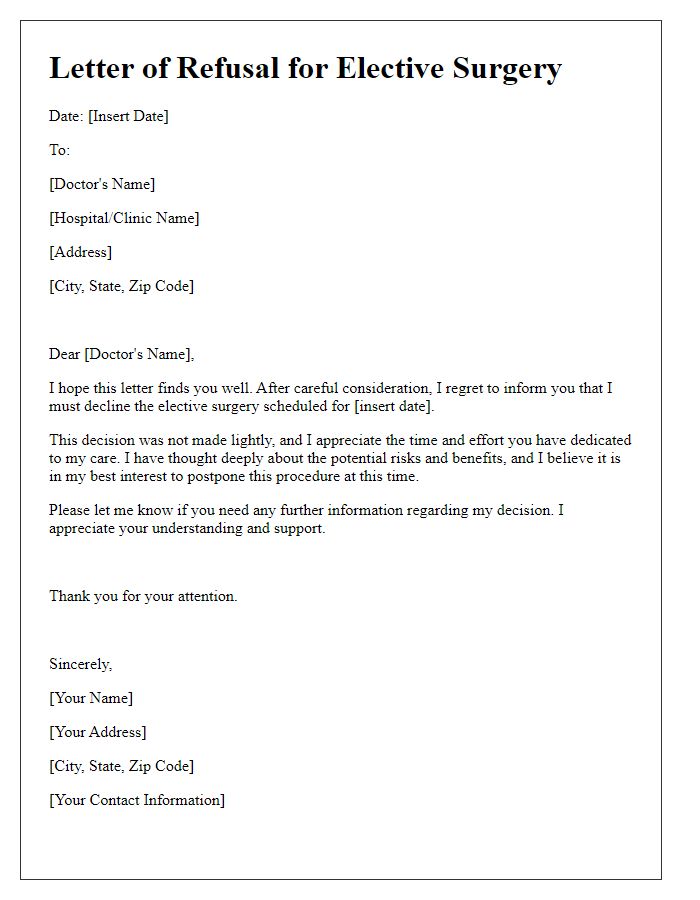
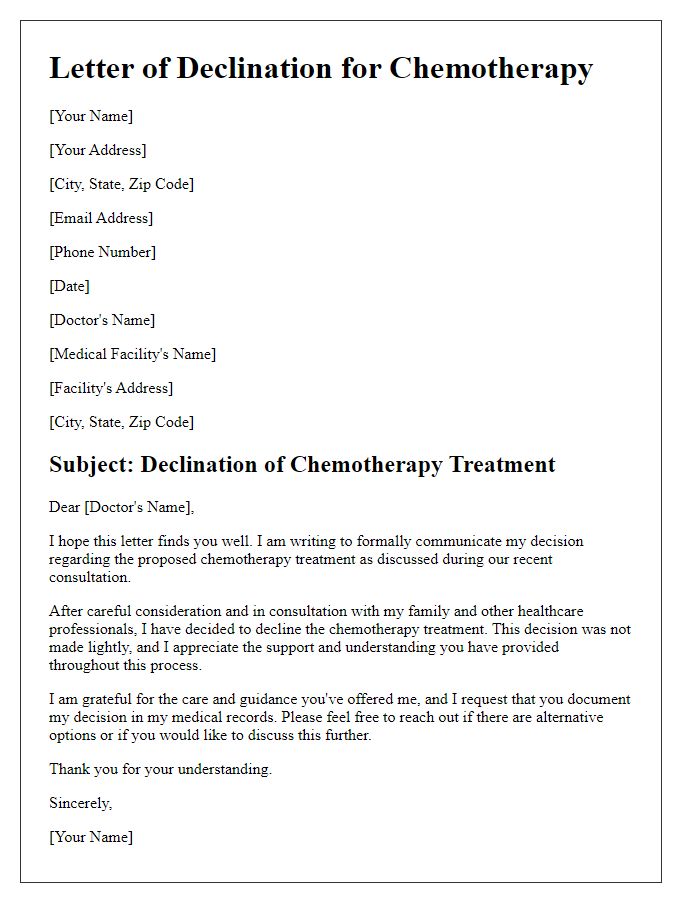
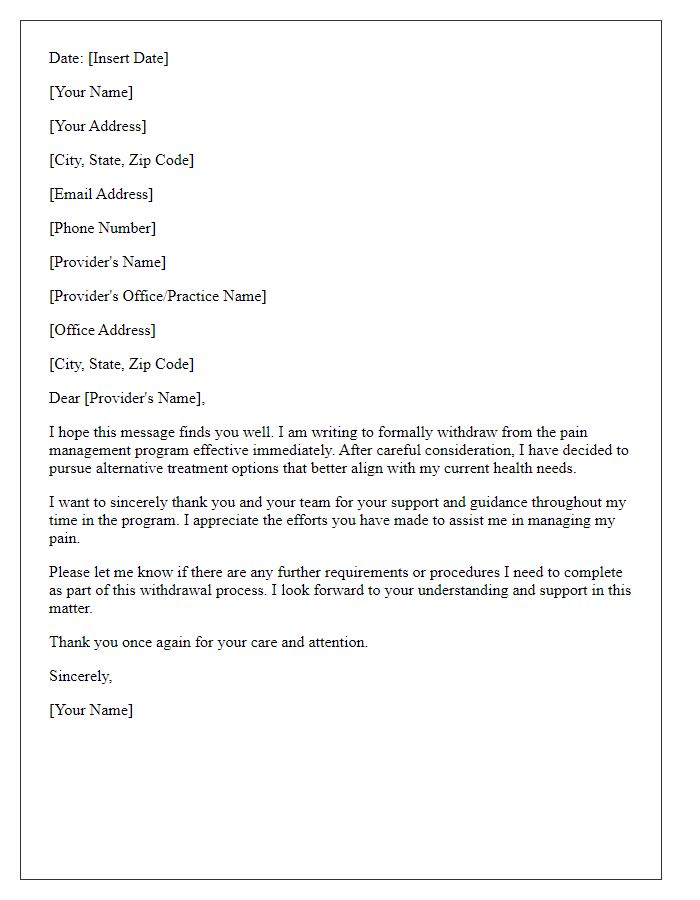
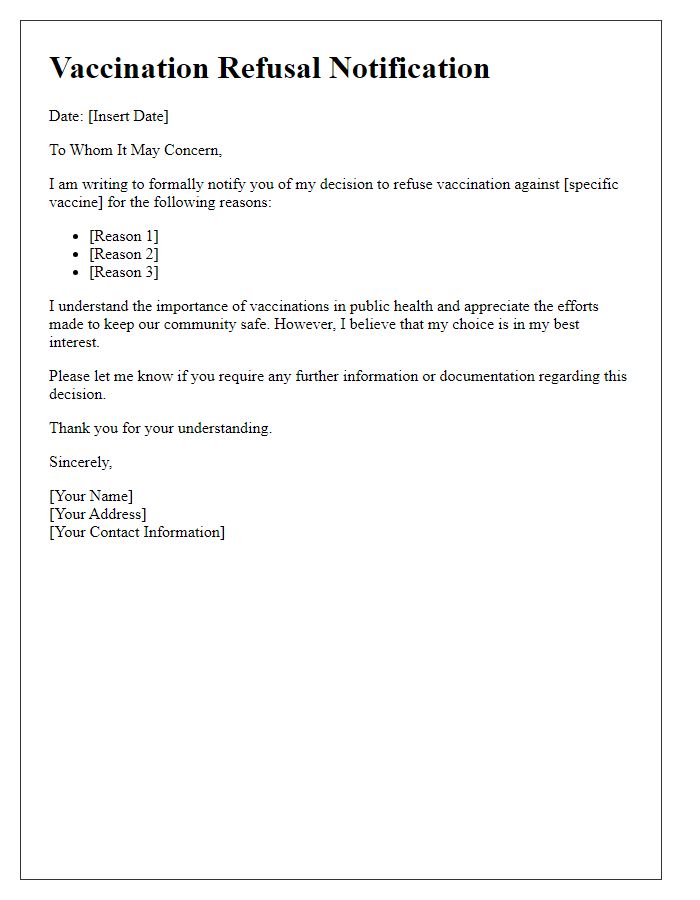
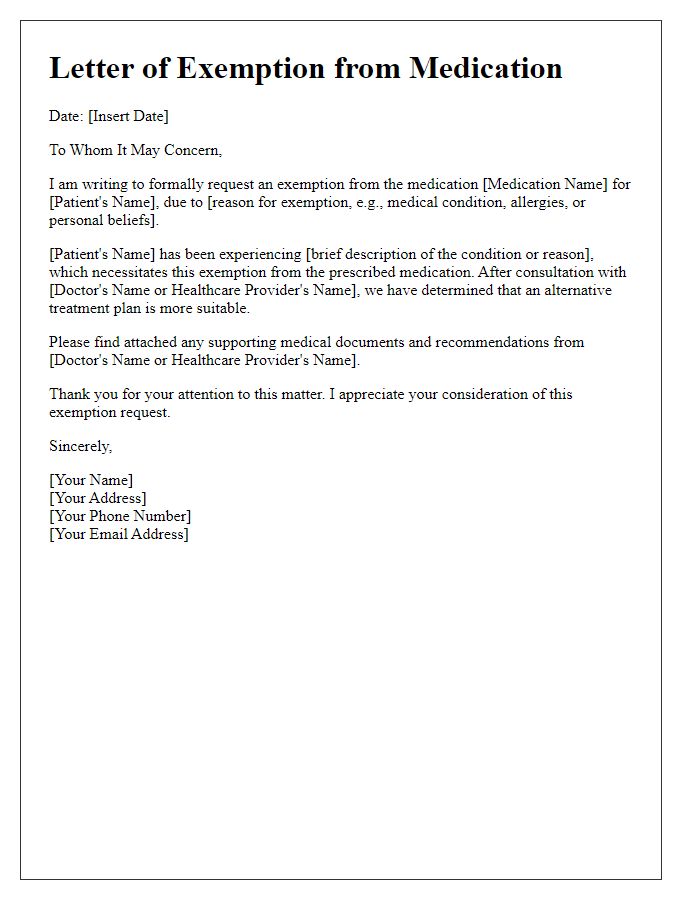
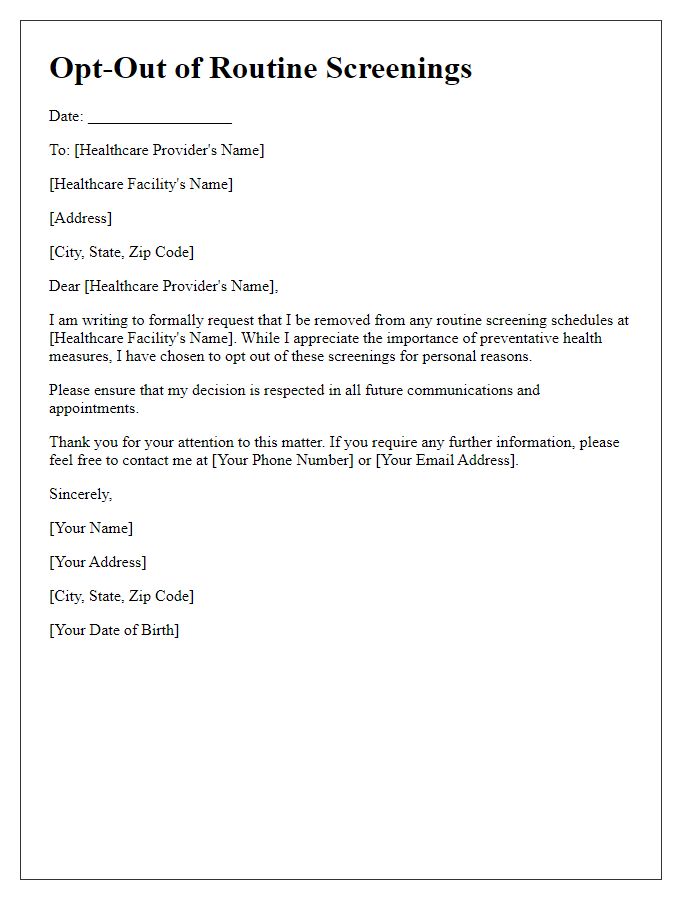
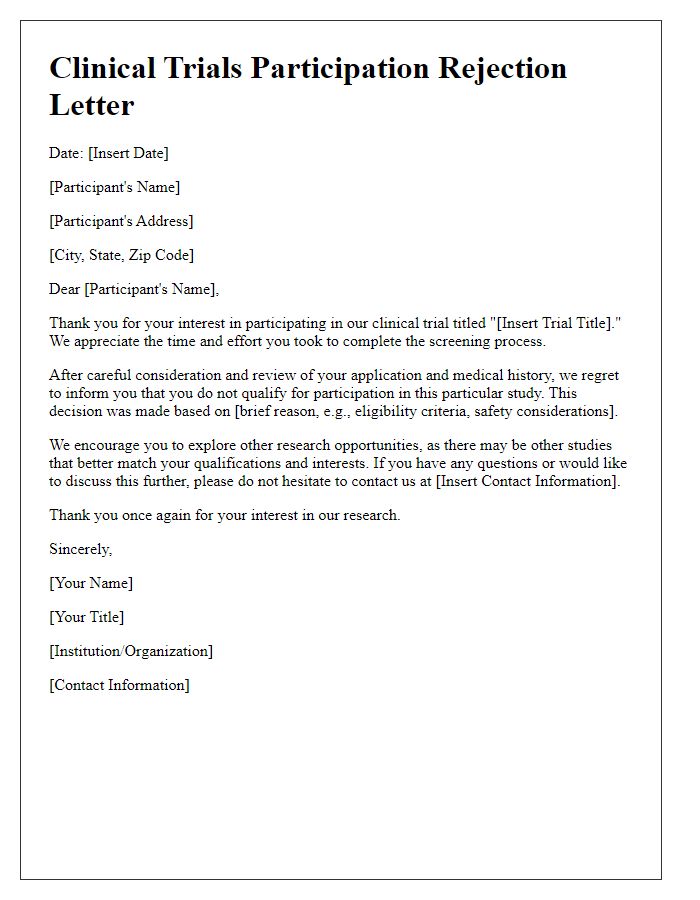
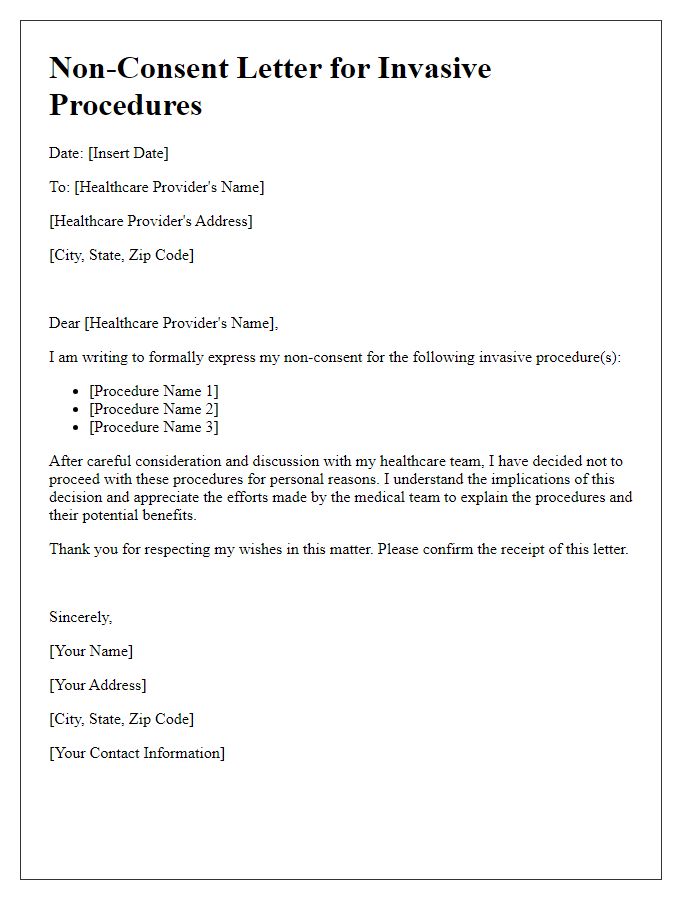
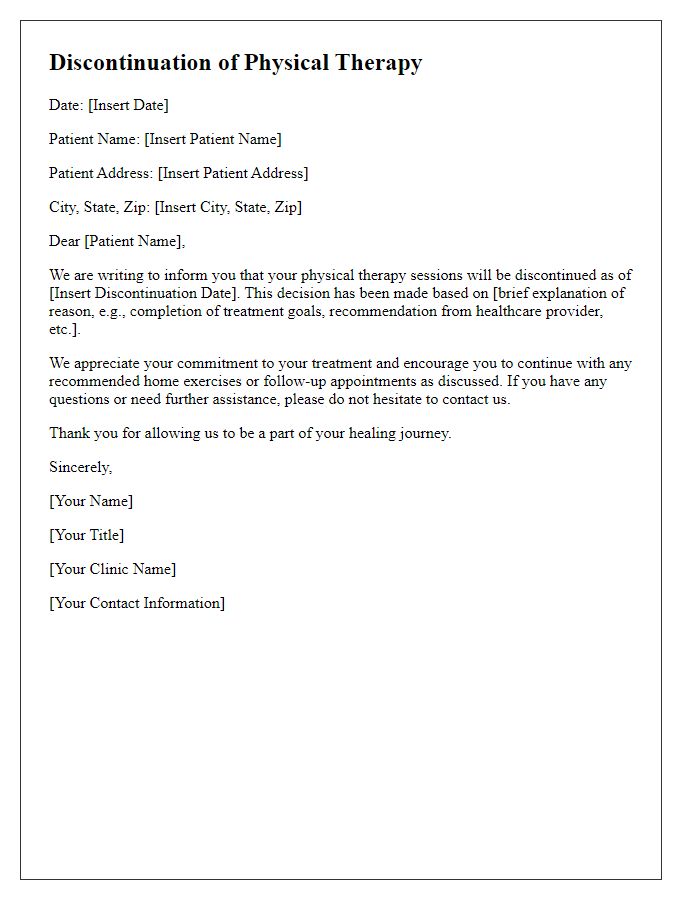
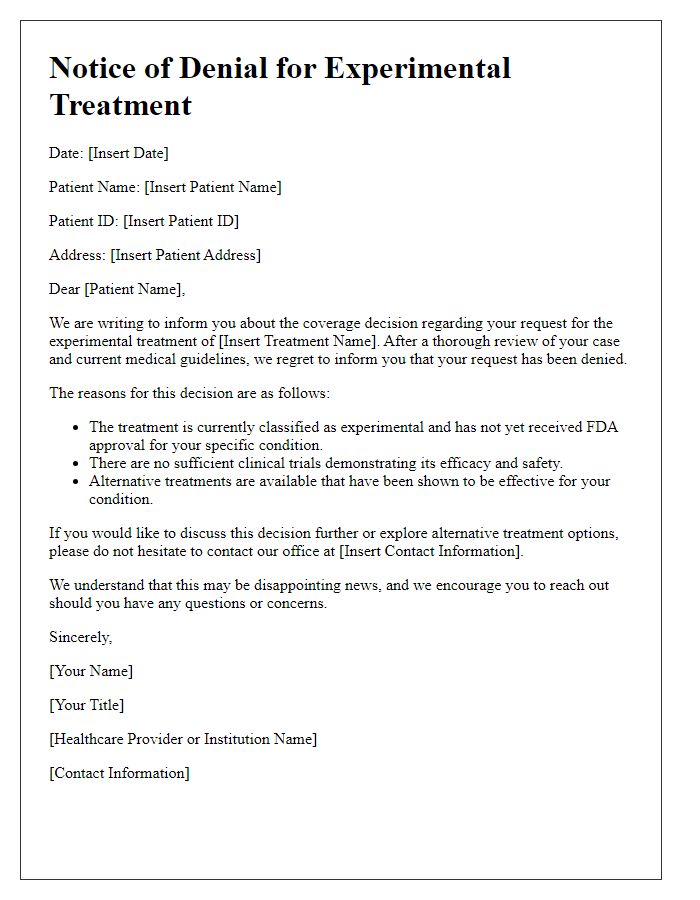


Comments